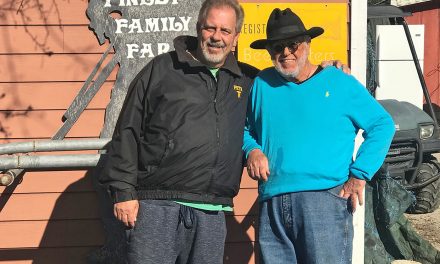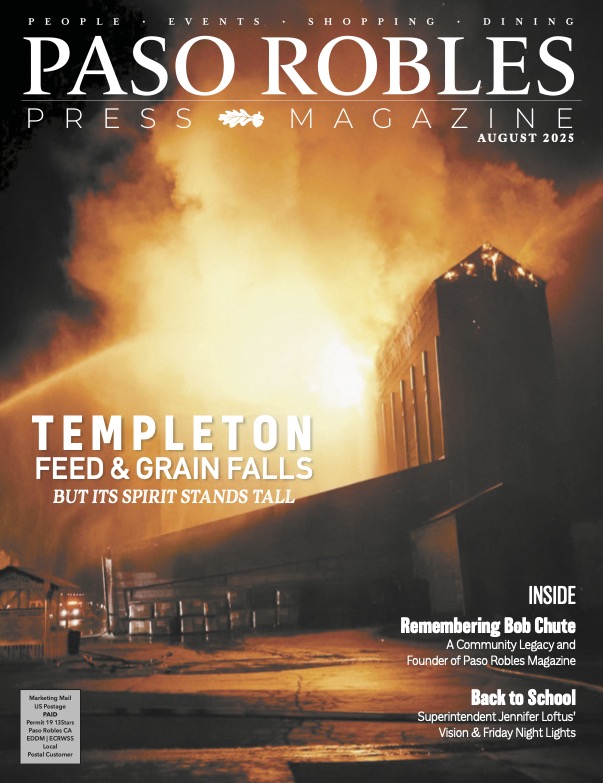Under state’s Advanced Clean Trucks rule, half of all heavy-duty trucks sold in California will be zero-emission vehicles by 2035
By Caleb Hampton
Contributor of the California Farm Bureau Federation
CALIFORNIA — The U.S. Environmental Protection Agency has approved California’s plan to phase out the sale of diesel-fueled heavy-duty trucks, including the big rigs that transport much of the state’s agricultural goods, in the state’s efforts to reduce pollution and carbon emissions.
Under the state’s Advanced Clean Trucks rule, which was signed in 2020, half of all heavy-duty trucks sold in California will be zero-emission vehicles by 2035. The state plans to eliminate the sale of diesel-fueled trucks by 2045.
The California Air Resources Board, which made the rule, emphasized that large diesel-powered trucks play an outsized role in pollution and carbon emissions. The board said diesel trucks and buses represent around 3 percent of vehicles registered in California and produce more than half of its smog-forming gases and carcinogenic diesel pollutants.
CARB had requested waivers from the federal Clean Air Act to set emission standards for heavy-duty vehicles.
“This is a big deal for climate action,” Gov. Gavin Newsom said after the EPA on March 31 gave California the green light to move forward with the rule. “We’re getting more zero-emission heavy-duty trucks on the roads, expanding our world-leading efforts to cut air pollution and protect public health.”
Additionally, the air resources board is working on an Advanced Clean Fleets rule that would build on the ACT regulation, which focuses on manufacturers. The ACF rule sets deadlines for buses and trucking companies to transition their operations to electric vehicles over the next two decades.
While the rules would curtail emissions, leaders in the trucking and agriculture sectors raised concerns about the readiness of the electrical grid, vehicle technology, and charging infrastructure for such a large-scale transition to zero-emission trucks.
“We are extremely concerned that the proposed ACF rule will be unworkable in the real world and could result in compromising the delivery of essential goods and services to Californians,” a coalition of commercial, transportation and agricultural organizations, including the California Farm Bureau, wrote last year in a letter to the air resources board.
The rules would impact California farmers who have truck fleets, as well as all those who rely on trucking companies to transport livestock and fresh produce across the state. They say delays caused by charging issues could jeopardize animal safety or the timely delivery of fruits and vegetables.
“Our products are obviously perishable in nature, whether that be milk or tomatoes or livestock,” said Katie Little, policy advocate for the California Farm Bureau. “We certainly don’t want them on the road longer than they have to be.”
Farm Bureau and other agricultural groups have raised questions about the lack of rural charging stations and the limited range of zero-emission trucks.
California has budgeted more than $5 billion for the transition to cleaner trucks and buses, but much of that work lies ahead. There are currently fewer than 2,000 zero-emission medium-duty and heavy-duty vehicles on California roads.
“I’m all for going green, but let’s be realistic,” Martín Chávez, farmer relations director at Pacific Farm Management, a labor contractor in the Central Valley, said in a meeting with lawmakers last month. “When it comes to my community, we’re barely getting our first gas station in 2023.”
There are other challenges for moving to electric vehicles. In California, the weight of a truck and its cargo cannot exceed 80,000 pounds. Batteries for electric big rigs can weigh up to 16,000 pounds, significantly cutting into the amount of cargo.
“If your truck now weighs more, your load is smaller,” Little said. “That means more loads, because the same amount of product still needs to get somewhere, and you have to take more trips to do it.”
Joe Antonini, owner of Stockton-based Antonini Freight Express, which trucks tomatoes, almonds, walnuts and olives, estimated his company may need 50 percent more vehicles to move its freight.
Little noted there is an ongoing national truck driver shortage.
She asked, “Are there going to be drivers to keep driving these trucks?”











